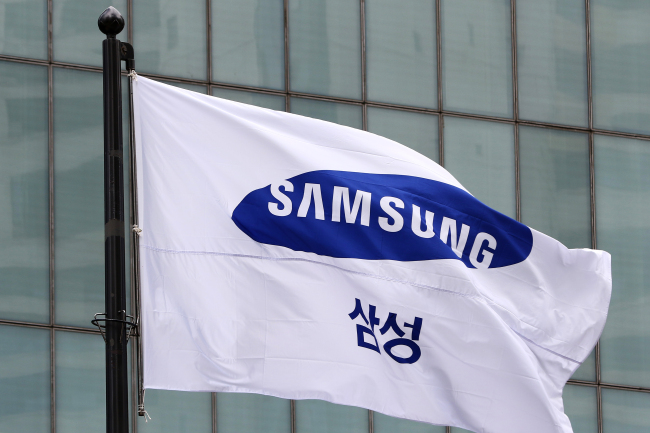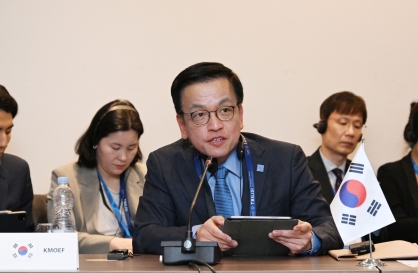IT industry rises as major pillar of Korean economy
Deregulation, reform of law in tech sector required for further growth
By 손지영Published : Aug. 16, 2015 - 17:50
Along with the steel, automotive and shipbuilding sectors, the IT industry has served as a locomotive that has driven South Korea’s economy for decades.
At the forefront of South Korea’s IT scene were electronics businesses run by conglomerates including Samsung Electronics, LG Electronics and Daewoo Electronics (now Dongbu Daewoo Electronics owned by Dongbu Group).
Having produced the nation’s first transistor radio in 1959, LG, then called Goldstar, was a pioneer in the domestic home appliance market: It rolled out Korea’s first black-and-white TV and first refrigerator in the 1960s.
At the forefront of South Korea’s IT scene were electronics businesses run by conglomerates including Samsung Electronics, LG Electronics and Daewoo Electronics (now Dongbu Daewoo Electronics owned by Dongbu Group).
Having produced the nation’s first transistor radio in 1959, LG, then called Goldstar, was a pioneer in the domestic home appliance market: It rolled out Korea’s first black-and-white TV and first refrigerator in the 1960s.

Following LG, Samsung jumped into the electronics manufacturing business in 1969, rolling out its own fridges, washing machines and microwaves.
After taking the helm of Samsung in 1987, chairman Lee Kun-hee asked his top executives and employees to focus on improving the quality of products to catapult the tech firm into the top echelon of the world’s IT business.
After about two decades of attempts to tap into global markets with their affordable home appliances, Korean companies finally outran their Japanese rivals such as Sony and Panasonic in the mid-90s.
“The Korean electronics firms were able to grow thanks in part to the government’s business oriented, export-oriented policies back then,” a market official said.
Samsung posted a 29.2-percent market share by sales in the world’s TV market, reigning supreme for the past nine years, according to research firm Display Search.
After outgunning traditional powerhouses in the handset market including Motorola and Nokia in the 2000s, the electronics business of Samsung Group also topped the world’s smartphone market as well.
Samsung grabbed a 21.7 percent market share in the second quarter to maintain the No. 1 position in the global smartphone market, beating iPhone maker Apple which came in second with a 14.1 percent market share, according to research institute IDC.

LG, which has maintained the No. 1 position in the world’s washing machine market for seven straight years since 2008, snapped up a 12.4 percent market share by sales last year, according to combined data of multiple research institutes including GfK. The company is also one of the largest high-end TV makers in the world, along with its compatriot Samsung.
On the back of the world’s fastest broadband Internet infrastructure built across the nation thanks to government-led projects, ventures sprouted up in the Internet and online game sectors during the late 90s and early 2000s.
Those Internet firms came up with fresh ideas including the world’s first social-networking services, Cyworld and I Love School, both of which were launched in 1999, five years ahead of Facebook.
Internet giants Naver and Daum (now Daum Kakao) and game companies Nexon, NCSoft and Netmarble were also established during the “venture boom.”
Despite such growth of the Korean IT sector, it now faces huge challenges mainly posed by Chinese businesses basking in strong domestic demand and the Chinese government’s support.
Market analysts argue that the blazing growth of the Chinese tech sector will not likely slow down any time soon and Korean firms need to brace for new waves of technology.
“The Internet of Things business will be a game changer in the ICT sector in the coming years, and how well and swiftly Korean tech giants can respond to changing market conditions to take the lead in the IoT segment will be important,” said Lee Jang-gyoon, a chief researcher from Hyundai Research Institute.
Deregulation and updating antiquated laws regarding technology will be important to spur innovation in the domestic IT sector, according to market officials.
“The Korean government’s regulations and long, intricate permission procedures to incorporate new technologies in existing businesses have been hampering the birth of innovation as often seen in the fintech (combination of finance and technology) and telemedicine sectors,” said an official from an IT solutions developing company, mentioning Chinese tech firms that are already wielding their influence in the new fields.
By Kim Young-won (wone0102@heraldcorp.com)






![[Weekender] Korean psyche untangled: Musok](http://res.heraldm.com/phpwas/restmb_idxmake.php?idx=644&simg=/content/image/2024/05/02/20240502050841_0.jpg&u=)


![[Eye Interview] 'If you live to 100, you might as well be happy,' says 88-year-old bestselling essayist](http://res.heraldm.com/phpwas/restmb_idxmake.php?idx=644&simg=/content/image/2024/05/03/20240503050674_0.jpg&u=)







![[Herald Interview] Director of 'Goodbye Earth' aimed to ask how we would face apocalypse](http://res.heraldm.com/phpwas/restmb_idxmake.php?idx=652&simg=/content/image/2024/05/03/20240503050732_0.jpg&u=)
